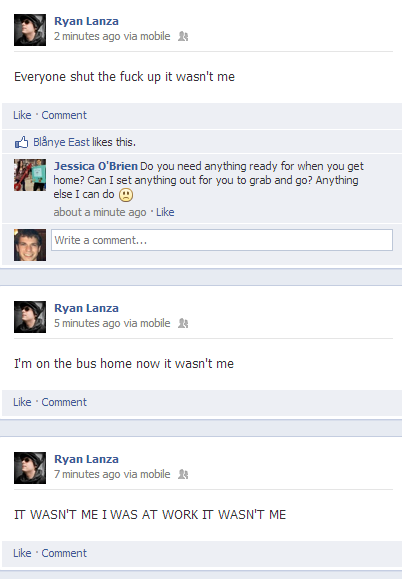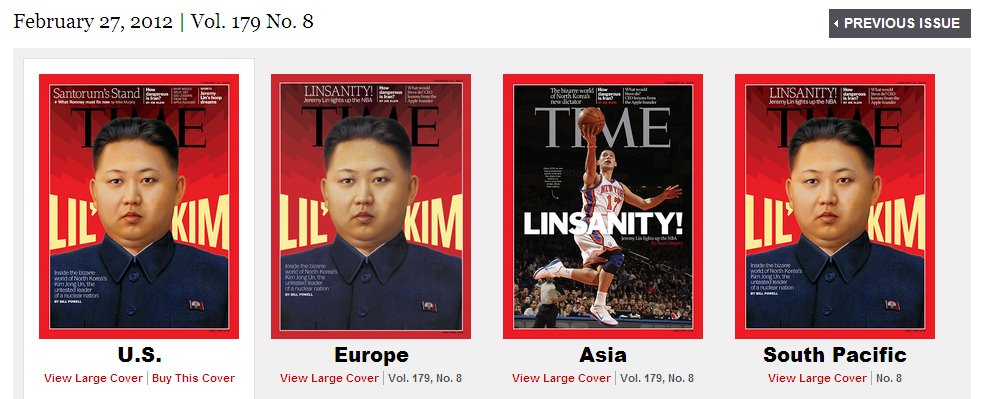For the Advertising/Marketing Class of 2013, I present you everything I’ve learned about this industry.
1) Get out now. Don’t go into advertising or marketing. People will hate you. Your parents will think you’re doing the devil’s work. You’ll never be able to adequately describe what you do when you meet strangers outside the industry and feel good about yourself afterwards. GET. OUT. NOW. Okay, that should get rid of all the uncertain people. If you want to make it in this industry, you have to commit. There are so many places where you could take a wrong turn (which can sometimes be a good turn), so you have to know what you want to do, and then set a path to do it. But be flexible. I can count on one hand the number of people I know who got their dream jobs right out of college.
2) You will not be paid as much as you think you’re worth, and you are not above internships. Most gainfully employed people that I know started out at internships. A lot of them aren’t ideal, but they’re not meant to be. You have to remember the ultimate purpose of internships for most companies – they’re either for building talent internally through pre-entry level hires, or they just want cheap labor that can be easily replaced. Most of the time, it’s the latter. That doesn’t mean you should half-ass your job. Learn everything you can, and at some point, you’ll probably outgrow your job responsibilities. Use it to build your resume, and then you can leverage your experience for a full time position (either there or elsewhere).
3) If you’re planning on moving back home and home isn’t a big city, you’ll be at a huge disadvantage. Like it or not, agencies gravitate toward metropolitan areas. There’s more talent, bigger clients, and the mystique of saying your office is in Manhattan. My parents had the foresight to move to Brooklyn and stay here throughout my entire life. It has definitely opened a lot of doors in terms of networking and being privy to the multitude of jobs available. I really don’t have a solution to this if you’re from the middle of nowhere and don’t have the means to get yourself to a big city. I guess it boils down to nurture over nature.
4) For the creatives – a good portfolio is a lot better than a good resume. What good is all the fancy book learnin’ if you can’t execute? When I was studying graphic design, I ran into a lot of people who definitely had “it”. Great eye for composition, creative ways of remixing existing concepts and themes, etc. But a lot of people also didn’t have the chops in school or even straight out of graduation. And that’s okay too; those people go to ad school.
5) Corollary to Tip #4: Sometimes you have to face facts and realize you suck. You might not have an eye for design or you might never be able to write riveting ad copy. If it’s just not in your nature, then no amount of schooling will help. Willingness to learn is huge, but it’s more important to accept critical feedback when it’s valid. Learning to identify the truly useful feedback is the hard part; I’m still working on that one.
6) Volunteer for anything you can. There’s always extra work to do, and raising your hand shows that you’re engaged and want to grow professionally. It may take more of your time, but if it works out, it’ll pay dividends. You never know when there might be a position you’re qualified for opening up somewhere down the line. It might be one that you’d never find out about unless your supervisor realized what ancillary skills you possess.

credit: JMaz Photo
7) Highlight your strengths. If you honestly think you have something to add to the conversation, speak up (given an appropriate situation). But don’t speak just to be heard. If people like what they hear, they’ll learn your name or ask about you in due time. Be visible, but not in an annoying, peer-antagonizing way.
8) As familiar as you are with your strengths, become more intimate with your weaknesses. Don’t rest on your laurels. Go in every day looking to improve. Set weekly or monthly goals. Presentation skills need some work? Seize as many opportunities as you can to practice and get feedback from your superiors who have been doing it for much longer. Lacking some technical skills? Ask if you can shadow one of your more experienced colleagues. If you can do it without inconveniencing them, you’ll not only learn something, but he or she might actually be honored that you asked.
9) Your college degree or GPA means a lot less than you think it does. Stop listing your GPA after you get your first real world job. If you don’t have to, don’t list what year you graduated (ageism is a litigable offense, after all). Let your experience speak for itself and try your best not to deal yourself any disadvantages. Your Ivy League undergraduate diploma will likely server its role as proof that you attained your basic education qualification. Sure, it may impress the HR people, but if that’s all you have, you’re not getting hired. Now, networking is a totally different thing. Take advantage of your alumni networks and see who your professors know in the industry. It will never hurt to know more people. And try your damnedest not to burn any bridges. The people you step over to get to the top will be the same ones you meet on your way back down.
10) For the love of all that is holy, keep your resume to one page or less. Nobody has time to read your fluffed up opus of an undergraduate CV.
11) Don’t forget to have fun your last year in college. But at some point, learn to stop procrastinating. Get all your job applications out of the way the end of Q1 2013.
12) Prepare your stomach for free lunches.
13) If you ever lose your passion for the industry, then get out. Otherwise, you’re just a cog in the machine and the longer you’re here, the more it’ll grind you down to your core. It’s not all Mad Men. 95% of the time, it’s as inglamorous as can be. It can get down and dirty and you may not see the benefits of the long term strategy until further down the road. If you’re unhappy, shop around before deciding whether or not you want to change career paths completely. But be warned, there will always be 150 qualified people gunning for your job the second you leave. And speaking of, don’t ever quit your job without another one lined up. Unemployment isn’t exclusive to the worst of us.





